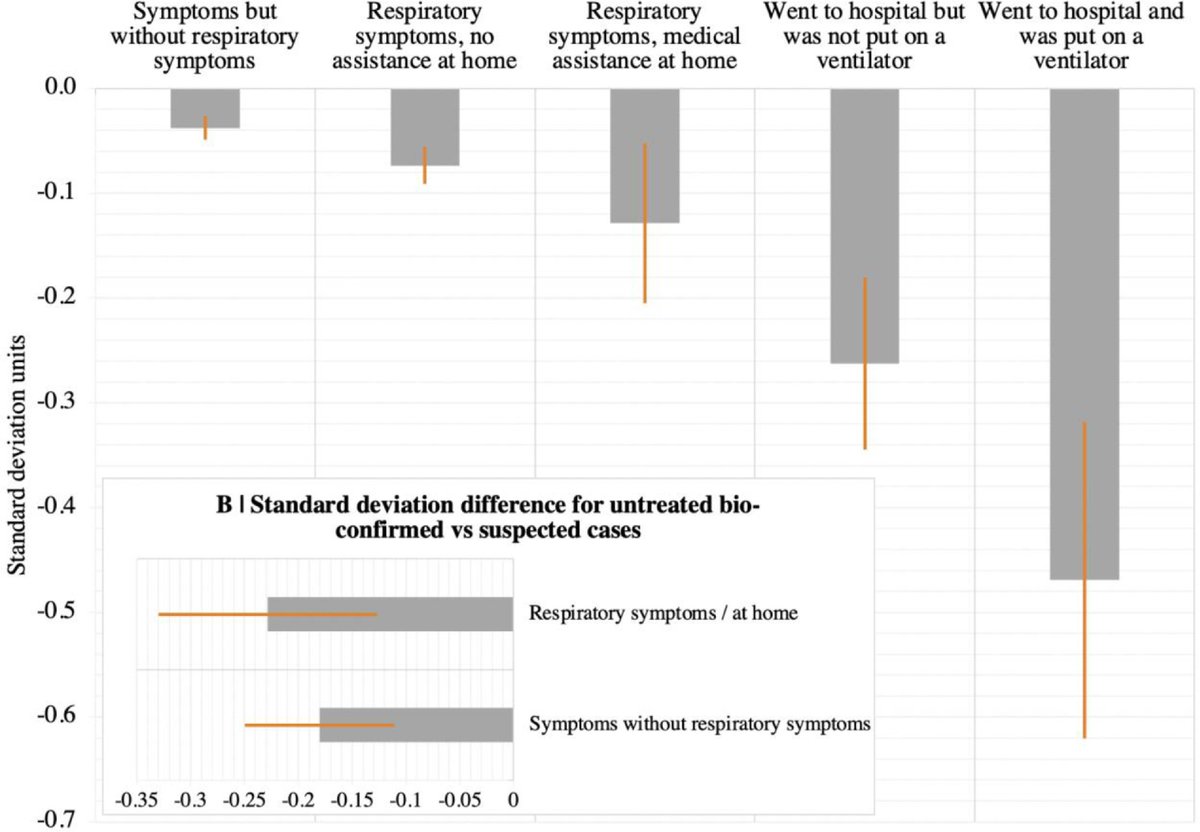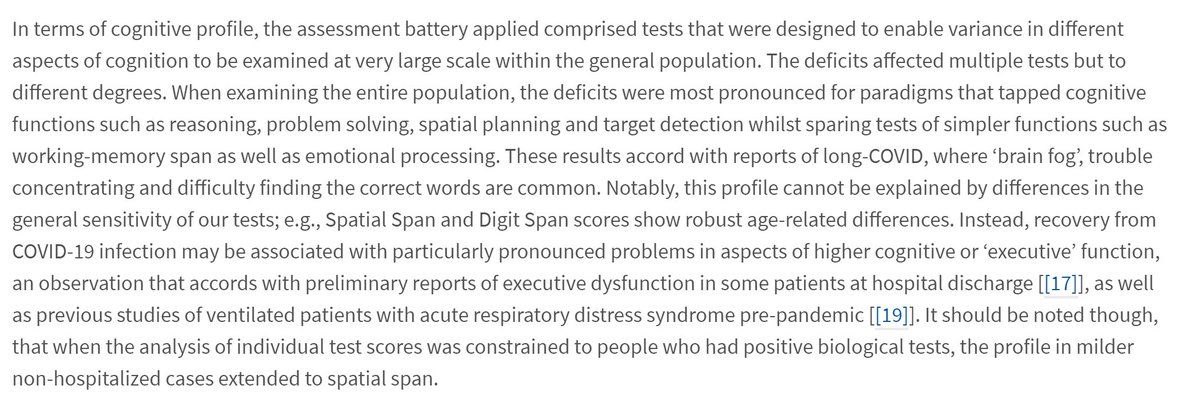LONG COVID THREAD:
The people running the BBC Horizon "Great British Intelligence Test" challenge on over 80,000 people took the opportunity to see if they could detect any differences by whether people had had covid or not...
The people running the BBC Horizon "Great British Intelligence Test" challenge on over 80,000 people took the opportunity to see if they could detect any differences by whether people had had covid or not...
2. They did this because of increasing concern over reoprted cognitive impacts of long covid - but more evidence is badly needed. 

3. What they found was significant cognitive deficit for people who'd had covid compared to people that hadn't, after controlling for things like age, education, sex, first language etc.
The degree of deficit was worse the more severe the initial covid infection had been.
The degree of deficit was worse the more severe the initial covid infection had been.

4. This isn't just about long covid - this compares people who had had covid with those who hadn't, regardless of ongoing symptoms. Most people who had had covid reported being recovered, but about 25% with confirmed covid reported ongoing symptoms (ie long covid). 

5. The cognitive deficits remained whether ongoing symptoms were there or not, and did not depend on time since covid either.
This seems to suggest it is a long lasting effect.
It also doesn't depend on pre-existing health problems .
This seems to suggest it is a long lasting effect.
It also doesn't depend on pre-existing health problems .

6. The authors put the results into context - the average deficit experienced by hospitalised covid patients (0.47 for ventilator, 0.26 no ventilator) were worse than average deficit by people who'd suffered a stroke (0.24). 

7. And the types of deficity found were consistent with the sorts of cognitive problems reported by people wth long covid 

8. The authors conclude that their data support other studies showing cognitive problems after covid.
Evidence for long term neurological and other impacts of covid is growing. But govt position seems to be that infections don't matter as long as NHS not overwhelmed.
Evidence for long term neurological and other impacts of covid is growing. But govt position seems to be that infections don't matter as long as NHS not overwhelmed.

9. I worry that once again we are watching an unfolding disaster while waiting for unequivocal evidence. Unquivocal evidence on long term impacts will, by definition, take months or years.
Maybe it never will - but so far, trajectory is towards more certain evidence not less.
Maybe it never will - but so far, trajectory is towards more certain evidence not less.
10. What if by the time there can be no doubt of long term problems in many people who've had covid, we've allowed millions more infections leaving hundreds of thousands more people affected.
ONS estimated 634K people with long covid that impacts their life in June.
ONS estimated 634K people with long covid that impacts their life in June.

11. For comparison, c. 260K people are diagnosed with diabetes & 500K with heart disease each year.
I worry that we are creating a chronic disease tragedy right now.
Please watch this @allthecitizens video about long covid to see what it can be like.
I worry that we are creating a chronic disease tragedy right now.
Please watch this @allthecitizens video about long covid to see what it can be like.
oh and today's @IndependentSage briefing was on Long Covid - please do watch!
• • •
Missing some Tweet in this thread? You can try to
force a refresh























